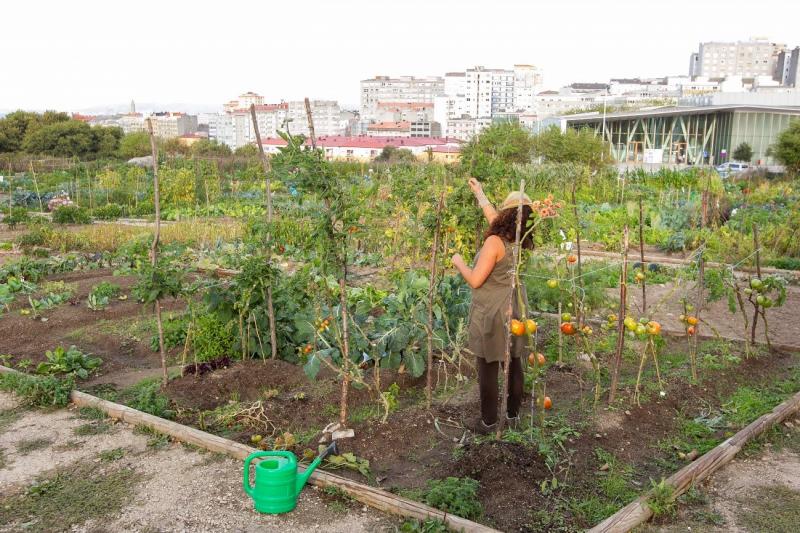
Picture: urban organic in Agra del Orzán in A Coruña. Source: A Coruña City Council.
Urban gardens are urban natural spaces that have multiple benefits from an ecological point of view, as they contribute to the improvement of urban biodiversity and climate change adaptation, reducing the «heat island» effect in cities.
Urban gardens require a small initial investment and a limited maintenance cost, becoming an efficient nature-based solution to be implemented in cities, promoting a sustainable use of the public space.
We know that important social benefits can be derived from urban gardening. Such initiatives favour the contact of citizens with the nature, with potential gains on their physical and psychological health. These potential advantages explain why more and more cities are implementing different projects related to urban agriculture.
However, when these urban gardens occupy public lands, which are the responsibility of municipalities, some considerations must be taken into account when promoting these types of initiatives.
First of all, the objectives set may be diverse, but must be consistent with the city’s environmental strategies. As an example, in A Coruña, urban gardening projects promote respect for the environment and the conservation of biodiversity while facilitating the direct contact of citizens with nature.
Beneficiaries will only be able to use organic agriculture techniques, such as using natural fertilizers and growing local species of vegetables and flowers, as well as aromatic or medicinal plants. Responsible use of water and soil resources is also required, as well as adopting composting techniques for organic waste.
The municipality has equipped these organic gardens with fruit trees, scrub and flower, species which increase the urban biodiversity and protect organic production fields.
A Coruña’s urban gardening project promotes intergenerational relationships. Children, adults and retired people share experiences in an experimental space where they can learn from one another.
However, for this initiative to be truly democratic, specific criteria have been established to guarantee equality of access.
For example, in A Coruña, urban gardens are tax free and specific places are reserved for retired people and citizens at risk of social exclusion. Likewise, the council launched a call for educational institutions and non-profit associations to present projects with social, educational, therapeutic or environmental goals to be developed in urban gardens.
To guarantee the economic sustainability of the project the gardens are free of charges, although regular maintenance costs should be covered by the beneficiaries. (más…)

